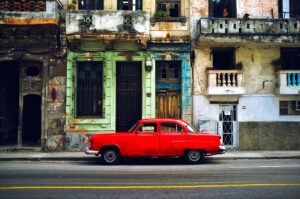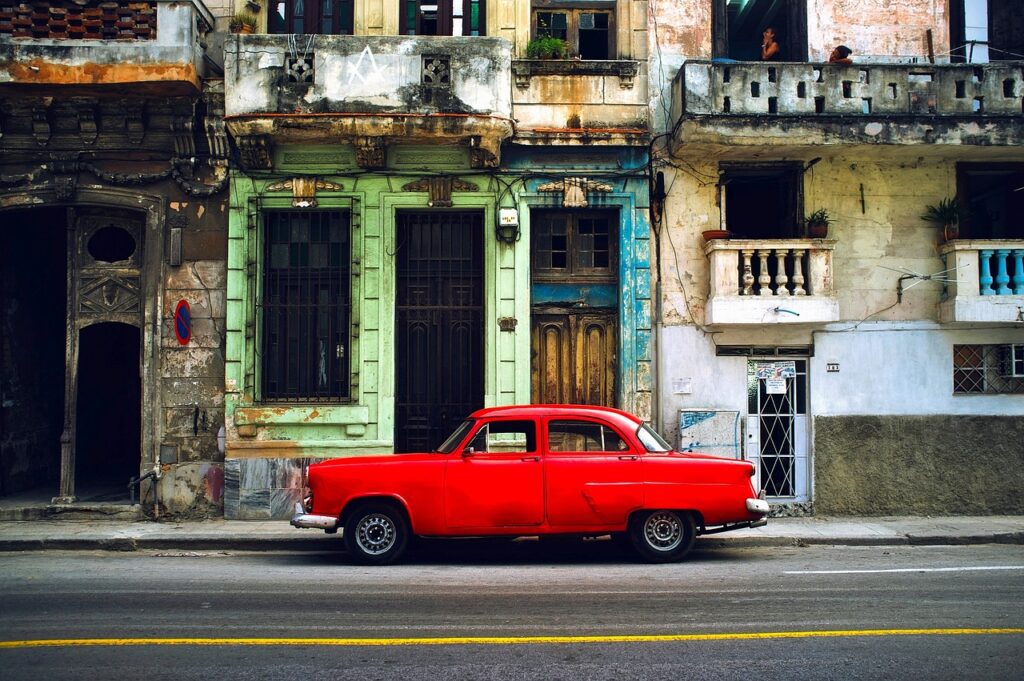Soul-Sucking Systems: What Leaders Can Learn from Cuba’s Lost Initiative
 On a trip to Cuba this year, I spent a day and a half in Havana with friends before boarding a boat for some fly fishing in the flats, far offshore. It was both fascinating and unsettling.
On a trip to Cuba this year, I spent a day and a half in Havana with friends before boarding a boat for some fly fishing in the flats, far offshore. It was both fascinating and unsettling.
Many of us, as Americans, likely have an image of Cuba that’s a mashup of cigars, rum, classic cars, and great music. We saw all of that, and it was cool! (I don’t smoke cigars, but my friends Lou and Don said the Cuban cigars were divine.) What wasn’t cool—and what disturbed all 12 of us on the trip—was witnessing the soul-sucking effect the government has on its people. Initiative had been stripped from them. Not all, but most.
In Cuba, the government makes nearly all the decisions regarding business, jobs, wages, production, and property. And with only one political party, how does this play out? Here are three examples:
The first tour guide we encountered (a government employee), as we rode around in one of those cool old cars—which, incidentally, are government-owned—had spent many years at university studying architecture and law. But now, she was a tour guide because that’s what she was told to do. If they wanted her to dig ditches next week, she would, whether she was interested or not. Our driver, as she explained when I probed deeper, was a “watcher.” She sipped rum from a flask the entire time, and her lack of enthusiasm was palpable.
Our second guide, this time on foot, skillfully dodged any tough questions. He lives in an apartment with his wife and three generations of his family. His description of the effort required just to buy groceries was exhausting. When one of my more capitalistic friends finally asked in frustration, “Doesn’t anyone complain or try to change things?” he responded, “There’s no point. Nothing will change, and there’s only one party.” Despite being clearly intelligent, he was resigned to a monotonous life under the government’s thumb. Those with initiative had mostly fled the country.
The last example (though I could share more) came on our final day of fishing. The lead guide had to leave a day early, so we pooled our tips the night before and gave them to the guides. (Fishing guides in Cuba make more money than doctors, purely from tips.) The next day, my friend Dave and I were baffled by the lack of interest and effort from our guide. When we returned to the mother ship that afternoon, all our mates had experienced the same thing. The guides’ attitude was, “We’ve already been paid, so why work hard?” I was disgusted. What kind of environment breeds that mindset?
Interestingly, the 2024 Nobel Prize in Economics was awarded to three economists who studied economic disparities among countries. It’s no surprise that democratic countries fare far better than centrally controlled economies. The rule of law, property rights, and innovation were cited as key factors, and the institutions that support them were identified as critical.
Cuba’s economic challenges became even more apparent while I wrote this, as the entire country was plunged into darkness when its electricity grid failed. The government simply doesn’t have the cash to pay for fuel. As Margaret Thatcher once said, “The problem with socialism is that you eventually run out of other people’s money.” Though she was speaking about individuals, the same principle applies to nations.
There are lessons here from both a macro (our country) and micro (your company) perspective. People thrive when given freedom and treated with respect. Meritocracy—where the starting line is guaranteed, but not the finish—creates winners and some who win less, but it’s far better than holding everyone back to ensure they all run at the same slow pace. (Yes, we still have much to do in our country to ensure a fair starting line!) Learned helplessness and dependency, whether in your children or your colleagues, are dangerous diseases. Autonomy and accountability are the antidotes!
I’ll try to end on a positive note. The Cuban government does allow some small private businesses. We went to dinner at a wonderful, diminutive restaurant with killer food run by two delightful women owners*, who shared a glass of rum with us. While they’re still closely monitored and heavily taxed, the small bit of freedom they’ve been allowed has sparked initiative, creativity, and unbelievable seafood paella. A small pocket of hope!
*The United States has had an embargo on Cuba that originated with Eisenhower and Kennedy. Kennedy’s original intent was to bring about hunger, desperation, and the overthrow of the Castro government. It hasn’t worked in 60 years and only adds to the misery of the Cuban people. It stays in place for silly political reasons. I promised the restaurant owners I’d at least speak about it. The paella was that good!

coaches CEOs to higher levels of success. He is a former CEO and has led teams as large as 7,000 people. Todd is the author of, Never Kick a Cow Chip On A Hot Day: Real Lessons for Real CEOs and Those Who Want To Be (Morgan James Publishing).
Connect with Todd on LinkedIn, Twitter, call 303-527-0417 or email [email protected].
